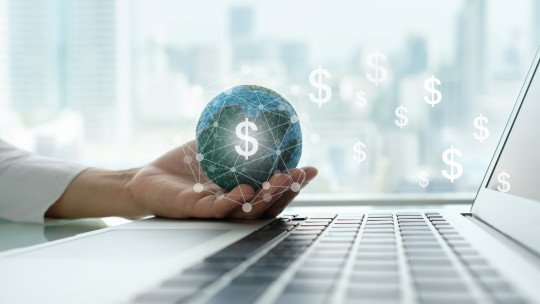Status bias is a psychological phenomenon with profound implications for modern economics. Refers to the tendency of people and institutions to place greater value on the opinions, decisions, or products of those in positions of prestige, privilege, or power, regardless of their true merit or effectiveness. This bias influences areas of the economy, from consumer behavior to public policy formulation, leading to inefficient resources, inequalities and speculative bubbles.
Understanding status bias is crucial to addressing the distortions it introduces to the economy. Although it is a natural tendency influenced by social and psychological factors, its effects can be harmful if not recognized and addressed appropriately, seeking to mitigate its negative effects on both an individual and collective level.
This article explores what status bias is, how it impacts economic decision-making, and what its consequences are on a global level. Besides, Strategies are proposed to mitigate its influence, thus promoting a fairer, more efficient and inclusive economy. Addressing status bias is not only an intellectual challenge, but also a practical necessity to build a more equitable and resilient society.
Definition and origin of status bias
Status bias is a cognitive phenomenon related to economics that refers to the tendency of people and economic agents to overvalue and favor those who occupy positions of greater prestige or influence, regardless of their real merits or abilities. This bias may have deep roots in human psychology, where perceptions of status influence how we evaluate decisions, risks, and rewards.
In economic terms, status bias manifests itself in different ways. For example, financial markets can overvalue assets or companies simply because they are associated with high-status figures or institutions. Similarly, in the workplace, employees with prestigious academic degrees or influential connections may receive better and more prestigious opportunities, higher salaries, or greater recognition, even if their actual performance does not fully justify it.
The origin of status bias in economics can be traced back to theories of signaling and social capital. Signaling theory suggests that individuals and organizations use credentials or high-status associations to signal their quality or credibility, even if these signals are not necessarily correlated with greater efficiency or actual ability. On the other hand, social capital highlights the way in which networks and relationships can increase the perceived value of a person or entity, regardless of their objective attributes.
This bias not only affects microeconomic decisions, but can also influence public policy formulation, in which governments may prioritize the recommendations or interests of high-status actors, even if they are not the most beneficial options for society. in general. Therefore, status bias is a crucial factor that can distort evaluations and decisions in a wide range of economic contexts.
Impact of status bias on decision making
Status bias can have a significant impact primarily on economic decision-making, both at an individual and collective level. This bias can distort the way economic agents evaluate options, risks and rewards, which in turn influences decisions ranging from economic investments to public policies.
1. Investment decisions
In relation to investment decisions, investors may overvalue companies or assets linked to high-status individuals, institutions or brands. This can lead to speculative bubbles, in which the value of an asset is influenced by inflation not by its economic fundamentals, but by the perception of status associated with it. An example of this is the overvaluation in some contexts of startups in early stages only, being backed by renowned investors or founded by people with prestigious backgrounds, without a critical evaluation of their long-term viability.
2. Consumer behavior
Status bias also has a relevant influence on consumer behavior. Consumers may prefer products or services from high-status brands, even if cheaper or equal quality alternatives exist. This trend is evident in markets such as fashion, technology and luxury automobiles, in which perceived value is strongly influenced by its association with a certain social status. This overvaluation can lead to excessive consumption or irrational or impulsive financial decisions.
3. Public policies
In public policy-making, status bias can lead governments and regulators to prioritize the recommendations or interests of influential economic actors, such as large corporations or high-profile experts. This can result in policies that favor certain sectors or groups to the detriment of the general well-being. For example, tax policies that disproportionately benefit large companies under the premise that they are crucial for economic growth, ignoring the potential of small and medium-sized companies.
Consequences of status bias in the global economy
Status bias can have consequences perceived at a macroeconomic level, affecting the distribution of wealth and resources, inequality and economic stability at a global level. This bias reinforces the concentration of power in the hands of an economic elite, generating distortions in the economy on a large scale.
1. Economic inequality
By favoring high-status individuals or institutions, the accumulation of resources in a small group is perpetuated, while less influential but potentially more efficient or innovative actors are marginalized. For example, In the investment space, funds and opportunities tend to flow to large corporations with high visibility, leaving startups or emerging companies with less access to the capital necessary to grow. This dynamic can limit social and economic mobility, as status becomes a key determinant of success, regardless of merit or ability.
2. Economic growth
Furthermore, status bias can influence the direction of economic growth. Status-based decisions can lead to inefficient allocation of resources, in which less productive sectors or projects receive more investment and support, while sectors with greater potential for innovation or job creation are undervalued. This can limit economic dynamism and reduce the economy’s ability to adapt to global changes, such as new technologies or energy transitions.
3. Financial stability
In relation to financial stability, status bias can contribute to the formation of speculative bubbles and subsequent financial crises. When markets overvalue assets or companies due to their status, instead of their economic fundamentals, an environment prone to abrupt corrections is created, which can trigger crises with negative impacts on a global level.
Strategies to mitigate status bias
To mitigate the impact of status bias in the economy, it is essential to implement strategies that promote more equitable decision-making based on real merit, rather than perceptions of prestige or influence.
1. Transparency in decision making
One of the main strategies to mitigate the effects of status bias is to promote transparency in decision-making, both in the public and private sectors. Transparency helps ensure that investment, procurement or policy decisions are based on objective and measurable criteria, reducing the influence of subjective factors such as status. For example, in recruiting staff or allocating funds, using blind assessments that omit information about background or connections can level the playing field for all candidates.
2. Education and awareness
Another effective measure is education and awareness about status bias to reduce its impact. Incorporating this topic into economic, business, and public policy training programs can help future economic leaders recognize and counteract this bias in their decisions. Likewise, awareness campaigns can guide consumers towards more informed purchasing decisions, reducing the impact of status on their choices.
3. Regulatory policies
Furthermore, it is important that, at the state and global level, regulatory policies are developed that promote fair competition and innovation, preventing high-status companies from monopolizing markets. This includes supporting small and medium-sized businesses, and ensuring that regulations do not disproportionately favor large corporations over the rest.
Conclusions
Status bias distorts economics, favoring decisions based on economic prestige rather than objective merit, exacerbating inequality and limiting sustainable economic growth. To counteract this, it is crucial to promote transparency, educate about this bias, and design policies that promote fair competition. By reducing the influence of status on economic decisions, we can move towards a more equitable, efficient and crisis-resistant economy.









